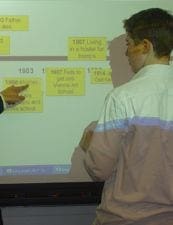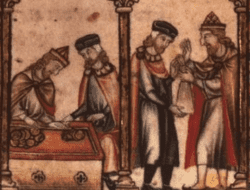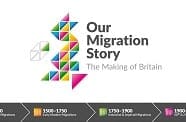Teaching Migration at GCSE level
Migration – If England was the safest place in Europe for Jews to live in Henry II’s reign, why then did Edward I expel them just 100 years later?
By posing this enquiry question in a slightly paradoxical way, students are encouraged to go deeper in the explanation than…
Read MoreTeaching GCSE thematically: 10 approaches that really work
Now that all schools have to teach a thematic study I thought I’d share my experience of observing hundreds of…
Read MoreMigration: Online resources
Great new Migration site www.ourmigrationstory.org.uk Our Migration Story: The Making of Britain is an Arts and Humanities Research Council-funded collaboration…
Read More
 As you know, Migration is a new optional topic for the linear GCSE starting in September 2016. With OCR the option appears in both of its specifications, though the time frame varies slightly. For OCR this part of the course carries 20% of the marks and is examined by a 105 minute written paper.
As you know, Migration is a new optional topic for the linear GCSE starting in September 2016. With OCR the option appears in both of its specifications, though the time frame varies slightly. For OCR this part of the course carries 20% of the marks and is examined by a 105 minute written paper.

